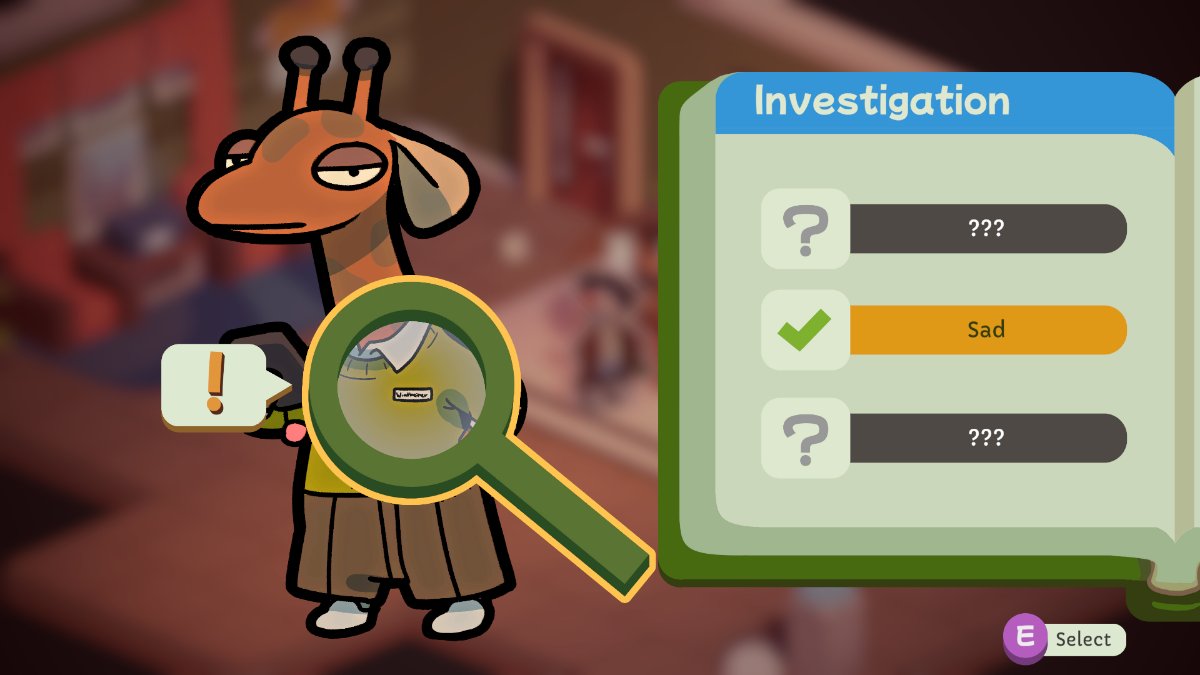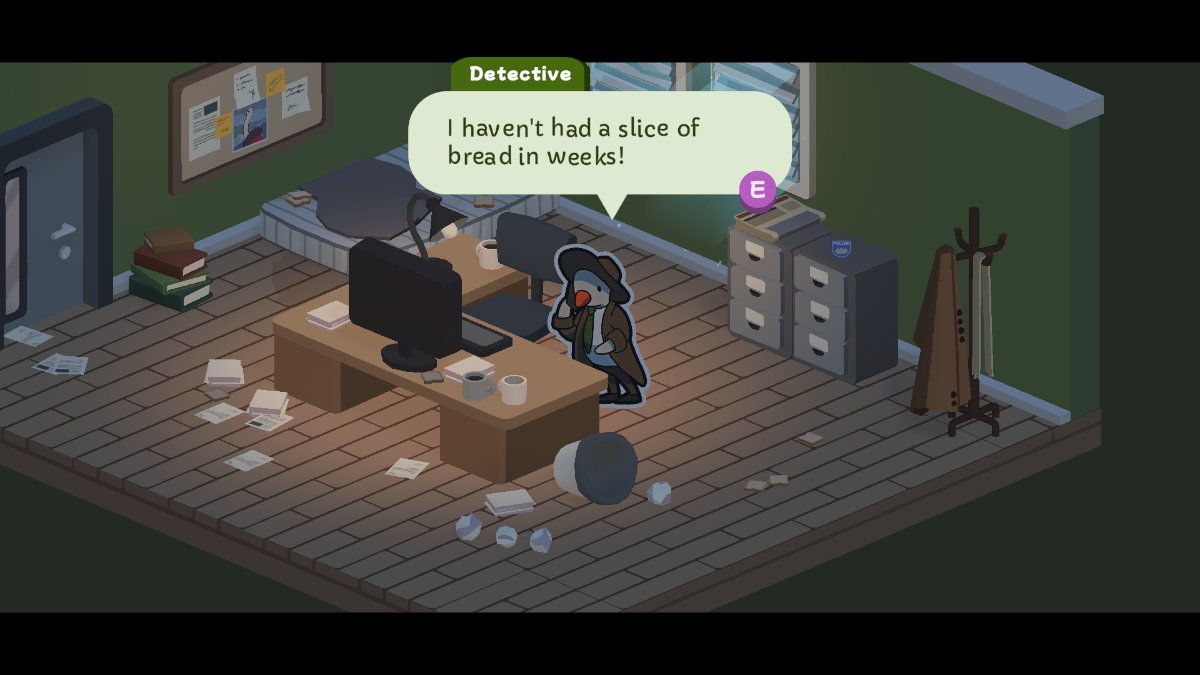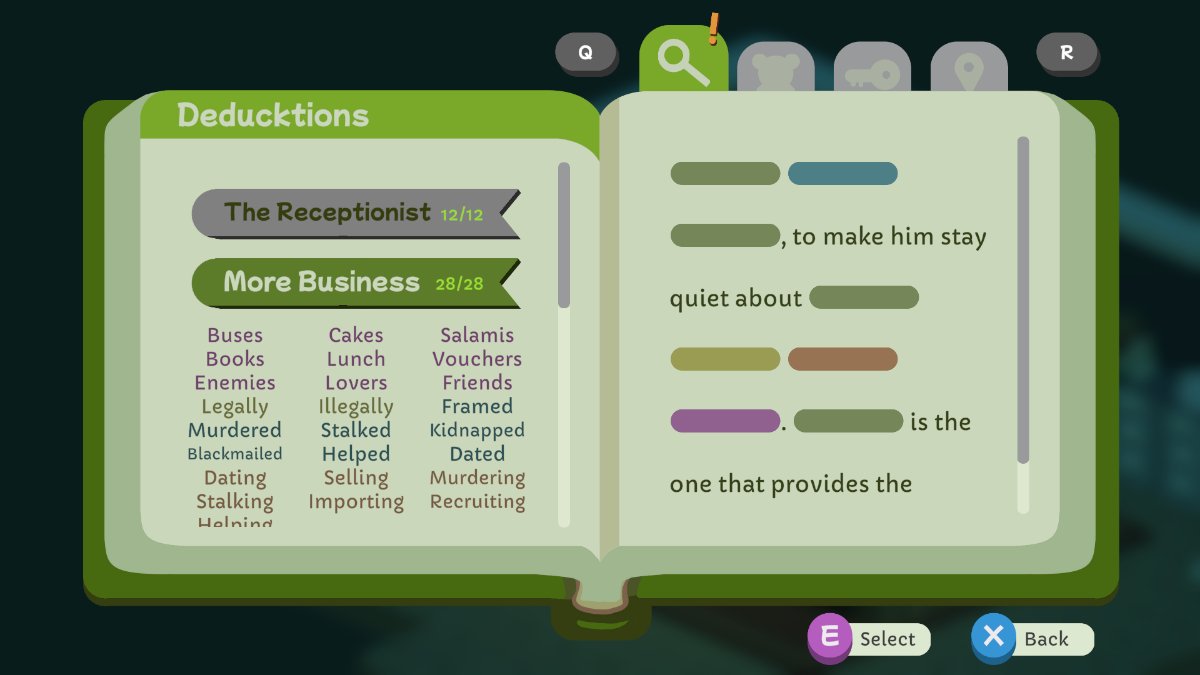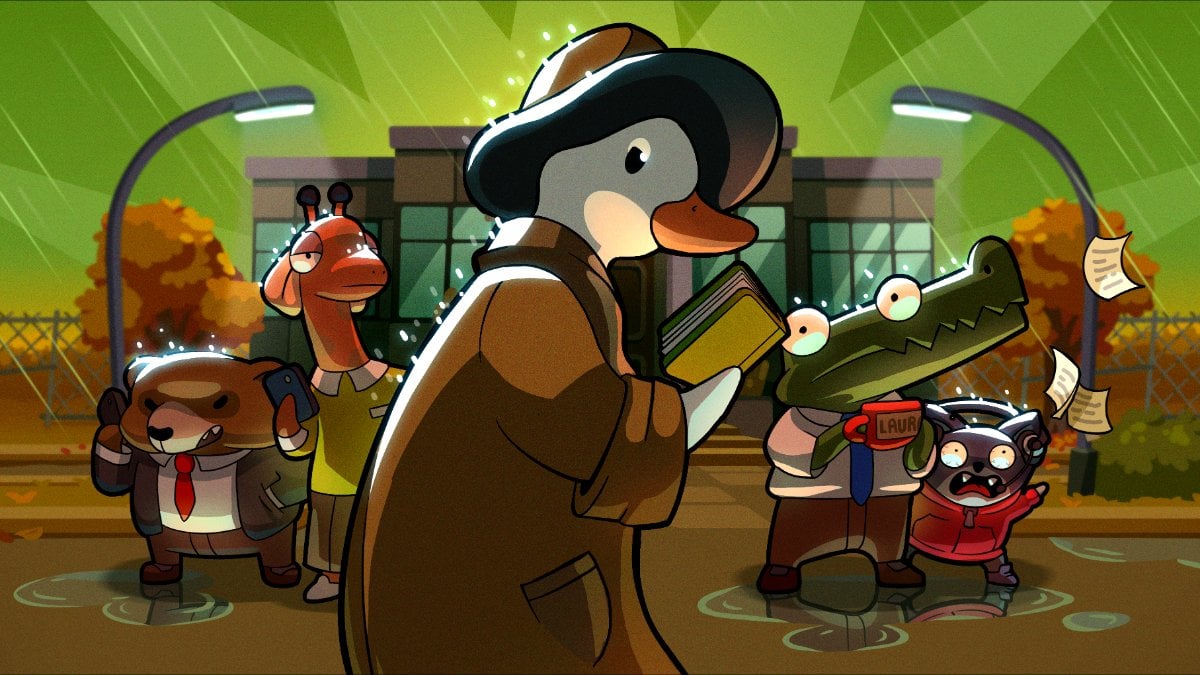Duck Detective: The Secret Salami is an investigation game about a down-on-his-luck duck and the low-stake crime he’s forced to investigate. It’s also an example of what happens when a mystery game fails to build tension, suspense, or even a vague sense of curiosity but pretty much nails everything else.
Good Game, Bad Mystery

What makes a bad mystery? In the case of Duck Detective: The Secret Salami, it’s a mix of underwhelming resolution and a plot that never thickens enough. Its short playtime doesn’t help either, wrapping up at just over two hours. Even the final revelation carries a weight that would only be appropriate for a mid-game twist. That’s not great for any game, but it’s utterly devastating for a mystery.
To be fair, Duck Detective: The Secret Salami is about much more than just the investigation. For one, the player isn’t supposed to take the mystery seriously. The premise is absurd, and the stakes are non-existent. Not even the self-important Duck Detective would be bothered to take this case if it wasn’t for his poor financial situation. Someone stole a colleague’s lunch. That’s it as far as motivations go for most of the game.
You’ll have a much better time with this game if you take Duck Detective as a parody of mystery games and not as a mystery itself. It succeeds in making its investigation minigames cute, funny, and visually appealing but can’t be bothered to make them mysterious. This extends to the voice acting, the music, and, especially, the art style, which is colorful and fun with brightly lit environments and 2D cardboard-cutout characters. It’s the type of game that’s more interested in making furniture fall when the protagonist walks past it than giving its small cast more than a handful of dialogue lines.
Is Duck Detective: The Secret Salami for Kids?

Kid-friendly games are important, and Duck Detective is certainly more suitable for younger audiences than most mystery games. No one is murdered, no one suddenly catches fire, and barely anything illegal happens. It’s quite an easy game, too. However, the prospect of attracting a young audience doesn’t stop the game from giving its detective protagonist an addiction to bread that cost him his marriage.
This duck-themed noir movie parody of a private eye is, admittedly, kind of funny, but where does it leave the game in relation to its audience? How about the fictional book “Sexy Aliens Want My Number,” an evident extension of a couple’s fantasy? Or the constantly overworked, underpaid, and occasionally depressed characters? Is a kid going to get the reference to the subreddit Am I the Asshole or Rick Astley’s Never Gonna Give You Up? I don’t think so.
Duck Detective wants to have its bread and eat it, too. The game is somewhat good for kids, though it could do with some improvements, and the adult public isn’t served much better. Every puzzle seems to be scaled down to be accessible to children. I’d call the plot cartoony, but that would undermine the dramatic potential of cartoons.
Sillyness isn’t a substitute for depth. Cartoon villains can have reasonable motivations. Whether Duck Detective: The Secret Salami is a kid’s game or not doesn’t justify how shallow its story and characters feel as if they were entirely made of someone’s first impressions.
Conducting the Investigation

Ironically, Duck Detective: The Secret Salami does go deeper than first impressions, but only in a strictly mechanical way. Many of the objects and characters that populate this small world can be observed in closeup, from a first-person perspective. While in this investigation mode, the cursor turns into a magnifying glass. Hovering the magnifying glass on the objects or character in question reveals a much more detailed second layer. Freddy the Crocodile has a large set of fangs, Sophie the Giraffe has been crying, and so on.
There are just three of those details in each closeup scene, and they’re very easy to find. Even then, only one of those details is usually relevant to the investigation, and the whole scene often lasts less than a minute. It’s a fun mechanic as it is, but it could have been developed into something more interesting. One standout example is moving your cursor/magnifying glass across a book, turning the scribbles that fill up the page into real words.
There are two other ways to find information in Duck Detective: talking to characters and showing them evidence. If your mind immediately goes to the iconic investigation series Ace Attorney, you need to lower your expectations. The Duck Detective will only ever ask one question per character, and most of them only answer with two or three lines of dialogue. Presenting a piece of evidence results in a similar reaction and doesn’t open up a new line of questioning. It wouldn’t be an investigation without questioning, but this feels more like small talk than anything else.
Once you have enough information, which is stored in the form of nouns, verbs, and adjectives, it’s time to formulate a Deducktion. If you’ve played 2022’s The Case of the Golden Idol, you’ll feel right at home. Deducktions are incomplete sentences that reveal some truth about the mystery. To solve a Deducktion, put the right words in the right spaces. It’s a simple enough system that requires the player to do quite a bit of thinking for themselves while making it difficult to get truly stuck. It’s a bit too easy and can be cheesed with little effort, but it makes carrying out the investigation quite satisfying.
Duck Detective: The Secret Salami — The Bottom Line
Pros:
- Charming presentation
- Funny, if you like puns
- Occasionally feels very unique
Cons:
- Bidimensional characters, simple plot
- Underwhelming resolution
- Surprisingly low on dialogue
Duck Detective: The Secret Salami struggles to make its mystery engaging. A charming presentation and interesting (if derivative) investigation mechanics could save it if the story’s finale wasn’t so underwhelming. It might have been a good introduction to investigation games for kids were it not for some out-of-place themes, like joking references to substance abuse and a tendency to default to old-fashioned referential humor. That said, if you want to play out your fantasy of being a P.I. duck, Duck Detective is your best shot yet.







Published: May 23, 2024 12:00 pm